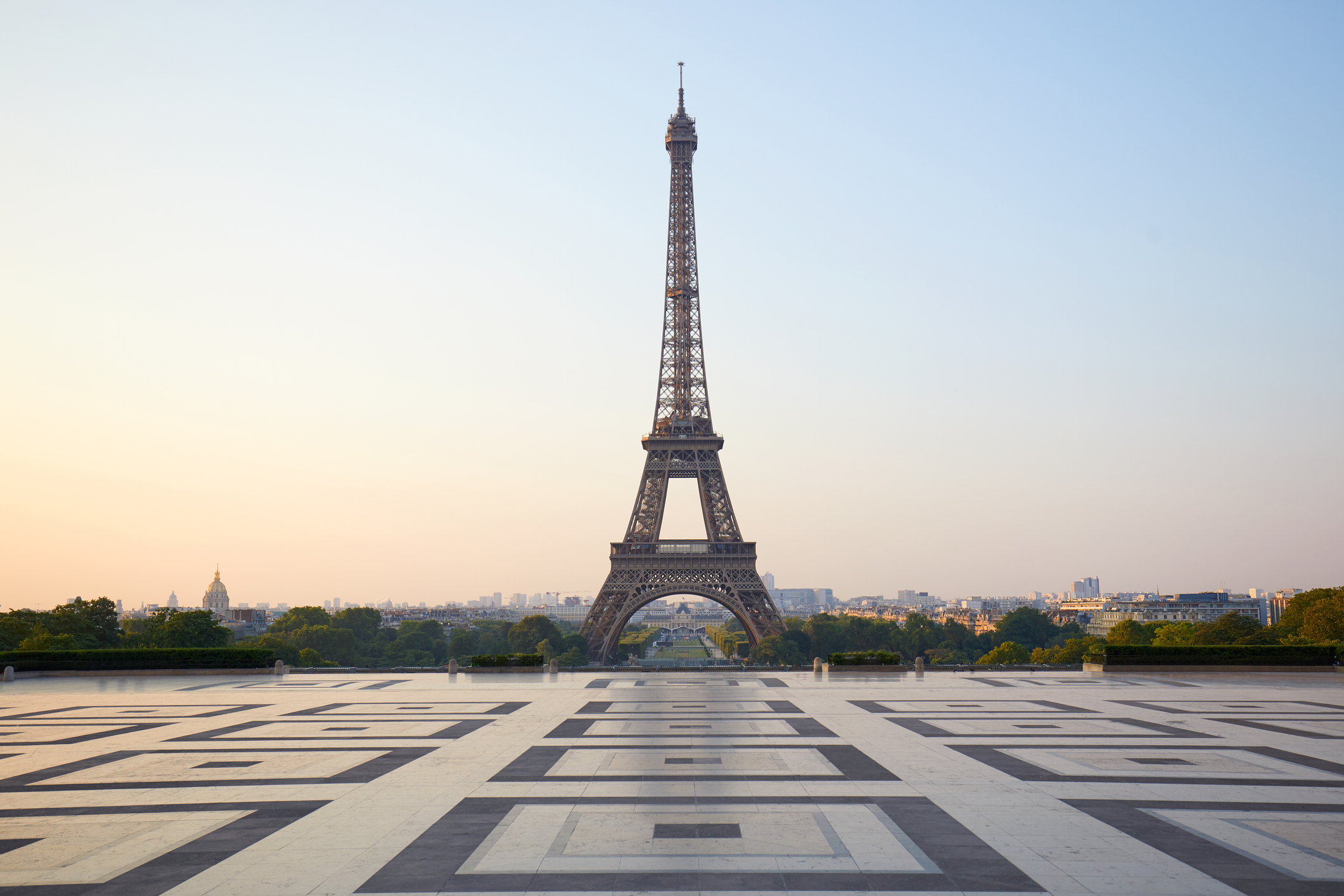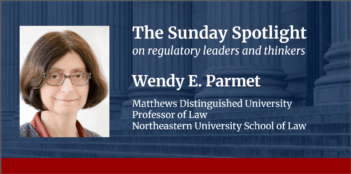
France’s inadequate response to COVID-19 is a failure to prepare, not a failure to predict.
France is facing a “sanitary war” in the words of President Emmanuel Macron.
This bellicose language invites the question: Is the COVID-19 crisis so frightening and singular that no one could have anticipated its magnitude? According to scientists, the answer is firmly “no.” French politicians often repeat a rhetoric of surprise and exceptionalism to describe this crisis because it justifies France’s unpreparedness. But ultimately, the French people are victims of regulatory failures, exacerbated by a failure to invest in risk management and the intransigent discourse of those who oppose preventive policies.
Although France is experiencing a shortage of resources today, the country has successfully addressed other health crises in the past. After the H1N1 crisis, for example, France equipped itself with sanitary facilities and enacted legislation to anticipate major risks. The French government created the specialized Health Emergency Preparedness and Response Agency, known as Eprus, to respond to sanitary emergencies.
Subsequent governments, however, have reduced the scale of this preventive arsenal for the sake of austerity. Eprus’s budget was drastically reduced from $281 million in 2007 to $25.8 million in 2015. The specialty agency was dissolved a year later and replaced with the French National Public Health Agency.
The French government’s response to COVID-19 has been hampered by a logic of exception. The measures taken have deviated from the legal framework originally designed to address public health crises. Indeed, as early as December 2019, alarming reports emerged that would have justified then large-scale prevention campaigns.
But the pandemic confirmed that France was unprepared for a major public health risk, establishing de facto the severity of the crisis. In mid-March, the government ordered the closure of all “non-essential” public places. Two days later, on the recommendations of scientists, the government imposed almost total confinement. The government strictly defined admissible justifications for leaving home: food or pharmaceutical purchases, medical consultations, and imperative professional reasons. Signed attestations were required to go out in public. People caught outside their homes without a valid reason could be subjected to fines up to 3,750 euros and up to six months’ imprisonment.
The federal government has responded to the coronavirus outbreak by enacting a new law that establishes a “state of health emergency,” which derogates from even existing exceptions. France’s highest administrative court, known as the Conseil d’État—or Council of State—issued an advisory opinion in support of the new legal framework for addressing the economic, public health, and democratic implications of the pandemic. President Macron also announced an ad hoc scientific committee composed of scientists and researchers who will provide the executive with additional recommendations.
Legal decisions responding to the pandemic have thus been presented as rational choices made from a scientific perspective. Is this a bad thing? It certainly can be if scientific prescriptions merely act as a palliative instead of remedying the deficit of political decision-making that has left the French government underprepared to address this crisis.
Basing its decision on the “particular circumstances” of this crisis, the French Constitutional Court—the Conseil Constitutionnel—has affirmed an emergency law enacted in contravention to Article 46 of the French Constitution, which requires that fifteen days must pass before the government can discuss an organic law that has been introduced.
The emergency law has also suspended deadlines for the Constitutional Court’s preliminary review of constitutionality. This preliminary review process is crucial in French constitutional law, as it allows “any individual in any court to ask the judge to pause the procedure in order to verify the conformity of a legal disposition with the Constitution.” The Constitutional Court’s decision to affirm the emergency law suspending this procedure has been criticized as “the worst ever made of the Fifth Republic.”
The government’s practical measures in response to the pandemic have also come under scrutiny. For example, a union of doctors has sued to require the government to enforce a stringent, clear containment policy. The Council of State rejected this petition for total confinement, demanding nonetheless that the government clarify the conditions of containment. In response, the government clarified that people traveling outside of the perimeter of their homes must present documents justifying their trips.
Regulations have evolved more erratically at the local level. Some towns have tried to enforce curfews. In Paris, for example, running is prohibited from 10 a.m. to 7 p.m. to avoid as much contact as possible among the population. It is unclear, however, who has the authority to establish these curfews. Local mayors and prefects—federal officials who represent the State in a region—are in conflict about who has this authority.
Complicating this matter further, some administrative courts have invalidated these curfews as improper restrictions on the freedom of movement. Other courts have struck down curfews that concern only juveniles. Human rights advocates, too, are organizing against these policies, which disproportionately affect people experiencing housing insecurity. Containment policy is therefore scattered and inconsistent throughout the nation.
Anxiety is spreading as the crisis develops. To their credit, human rights activists are striving to organize. Are their hopes vain? Recent developments lead us to adopt a realistic—and consequently pessimistic—position.
Nearly 10,000 police officers are suspected to be infected, and nearly 100 detention workers and prisoners have tested positive, although the shortage of tests prohibits an accurate assessment of the extent of the crisis. France reportedly performs 40 percent fewer tests per day, compared to the number Germany performs.
Medical workers are constantly warning of the flagrant lack of equipment. Yet the Council of State has rejected claims for the production and provision of health care equipment, and it has denied doctors authorization to prescribe hydroxychloroquine, an anti-malaria drug not confirmed to be effective against COVID-19, but which some physicians elsewhere have used. The Council of State justified these decisions—called “ordonnances”—based on ongoing requisitions, insufficient proof of scarcity, and the lack of scientific reliability.
The Council of State also rejected requests to requisition factories to end shortages, to conduct an urgent census of people experiencing homelessness and to re-house them, and to facilitate massive testing campaigns. In its decision, the Council of State cited the sufficient responses already implemented by the executive branch. Indeed, when the Administrative Court of Guadeloupe timidly granted an emergency request for tests and hydroxychloroquine, in quantities “sufficient to cover present needs,” the Council of State overturned the decision a few days later.
Other litigants have sued on behalf of those who have been detained during the crisis. Some advocates have requested closure of administrative detention centers for immigrants, invoking the right to life and the right to receive medical care. The Council of State rejected these claims, holding that the conditions would not be detrimental “in the particular circumstances of the present time.” Petitioners have also sought the release of those in pre-trial detention, who remain imprisoned, due to the postponement of hearings. The Council of State dismissed these claims, once again, without even a debate.
The first criminal sentences have already been imposed, with imprisonment for a doctor who deliberately coughed on police officers. Victims of the disease are also organizing themselves—via the internet—to seek compensation. The death of assessors who helped to organize the municipal elections, held on the eve of the confinement, could engage the responsibility of the state.
As this crisis continues and eventually subsides, we will likely debate which leaders should be held accountable for how events unfolded. An inquiry is already in progress in Parliament. In addition, a group of health care workers has brought a case before the Court of Justice of the Republic—a court designed to hold government leaders criminally accountable—alleging “culpable negligence” in the government’s management of the pandemic.
The words of the former Health Minister Agnès Buzyn are particularly controversial. Buzyn, who is a member of President Macron’s political party, stepped down from her role to run for mayor of Paris. She reportedly alerted the executive to the risks prior to the election, describing the public health threat as a brewing “tsunami” and calling for the cancellation of the elections. Nevertheless, after learning about the first French patients to be hospitalized in mid-February, Buzyn remarked that “their condition does not give cause for concern.”
Previous crises have taught us that the inability to impute causality inhibits political accountability. As a result, when evaluating the government’s response, we must observe and investigate the rhetoric of exceptionalism and surprise—and how it serves to dilute responsibility.
The current crises demonstrate how difficult it is in France to ground policies in evidence, as well as the reluctance of courts to enforce evidence-based policies. By refusing to compel the government to enforce mass testing, the Council of State is taking a political rather than a scientific stance in addressing the coronavirus pandemic.
This essay is part of an ongoing series, entitled Comparing Nations’ Responses to COVID-19.





